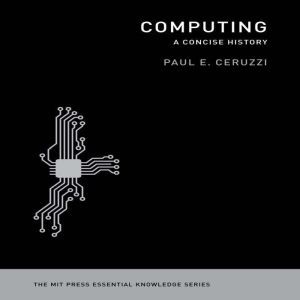

Computing: A Concise History
Author: Paul E. Ceruzzi
Narrator: Tim Andres Pabon
Unabridged: 3 hr 56 min
Format: Digital Audiobook Download
Publisher: Ascent Audio
Published: 11/01/2015
Categories: Nonfiction, Business & Economics


Author: Paul E. Ceruzzi
Narrator: Tim Andres Pabon
Unabridged: 3 hr 56 min
Format: Digital Audiobook Download
Publisher: Ascent Audio
Published: 11/01/2015
Categories: Nonfiction, Business & Economics
Nothing against this book. It certainly delivers as promised by the title a CONCISE history of computing (~150 pages). The writing is clear and skims over a lot of details rapidly. And it's largely trivia and facts -- names, places, and dates -- and not much of the theories or mathematical basis of......more
British robots fought Nazi robots during the battle of Britain. Well, depending on you definition of robot. The Nazi "Buzz Bombs" were arguably robotic in nature, using a simple guidance system, and so were the automated guns we made to shoot them down. By wrapping wire around a cam shaft we could pr......more
I was looking for an account of the decades when computing started to change the world, the 1940s - '70s. I was especially curious about the '50s - '60s, when computers were still behind the scenes to most people but were already advanced enough to fly rockets to the moon. Ceruzzi did a good job of......more
Concise but Comprehensive. I was concerned upon starting this book that the Author would neglect the early attempts at inventing calculating machines that were the real roots of the Computers we know. I was happy to find out that he does refer to these devices, successful and unsuccessful though the......more
This book definitely delivers on the "concise" part of the title, coming in a little over 150 small pages, but concision means making choices on what to exclude, and in this case, that's most of the technical detail. Ceruzzi's thesis links computing to four major concept: digital representation of c......more